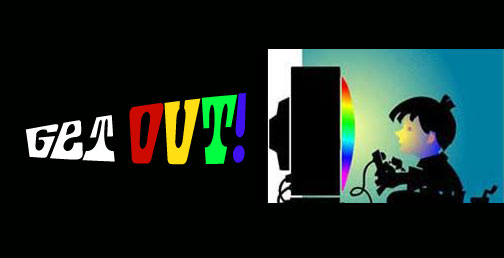By Malini Sekhar
“These things don’t happen in our community.”
“Western culture gives such issues too much importance.”
“She will grow out of it.”
I have heard these lines many times, in different forms, when the topic of emotional and mental health surface within the South Asian community.
Unfortunately observations like this cannot explain away, nor ultimately help, the overworked South Asian high school student with depression that attempts to take her own life, or the young man displaying symptoms of schizophrenia.
Razia F. Kosi, the Executive Director and Founder of Counselors Helping (South) Asians (CHAI) shares insight on mental health issues in the South Asian community.
____________________________________________________________________________________________________________
What are your observations of the way the South Asian community handles mental health?
In many situations the parents may be in complete denial about a serious mental health issue affecting a child. They may ignore the issue or approach it in a way that increases the symptoms for the child.
Why do you think we are not addressing the issue effectively?
Cultural bias in the community about mental health and a mistaken belief that issues affecting a person’s mental health are a “character” flaw versus a biologically-based disorder or a result of external stresses can be some of the reasons.
The Model Minority Myth, the concept that Asians are the “ideal” ethnic minority in the US because of the perceived success above other ethnic minority groups has also added to the stigma against seeking help for mental issues. The image of all Asians being successful is false and adds additional pressure for South Asians to attain and maintain success, and makes it even more difficult to seek assistance when they are experiencing difficulties affecting their mental health.
What can we do differently?
It’s important for our community to gain a better understanding that mental health is important. A person’s mental health is as important to a person’s well being as their physical and spiritual health.
Mental health is comprised of the way a person thinks, interacts and behaves with others. Clarity of thought and reality perception is critical to a person’s day-to-day functioning. So if a person is seeing things or hearing voices that others do not see or hear, it will highly impact a person’s sense of reality. This can affect a person’s performance in school and work. Understanding the importance of mental health and ending stigma about this topic will greatly help us support better mental health and treat mental illness in our community.
What are some signs or symptoms we should pay attention to in our loved ones?
Changes in behavior patterns such as increased or decreased sleep, increased or decreased eating, substance abuse, compulsive behavior, or other behaviors that are not usual for the person. Thought patterns such as hearing voices, seeing things that others cannot see, or excessive fears which are interfering with the person’s day-to-day functioning are also critical signs to be aware of.
Do you have any tips for parents specifically?
• Parents can approach this issue by having open communication with their children and talking about mental health as part of a child’s overall well being. Talk with your child about what is going on in their day-to-day life to see if they are experiencing external stressors (problems with friends, academic stress, bullying, etc.)
• If you are concerned about your child, talk with your child’s teacher or guidance counselor to gather information about what they are seeing at school. South Asian parents might feel especially conflicted about this since education is highly valued in the community. Both educators and you as parents want the child to be successful, and open communication will ensure any support or intervention your child might need are given early.
• A therapist might be another support for the student and parents. Finding a culturally competent therapist is important to both the comfort of the child and parents. This may mean talking with schools about therapists they know. It may mean talking with your local pediatrician or family doctor about therapists and looking for resources online. Looking into your insurance provider and asking about language access or reviewing the names of the different providers are other ways to locate a culturally competent therapist.
Are there any online resources you would recommend?
Counselors Helping (South) Asians, Inc. (CHAI, Inc.)
CHAI helps educate the South Asian community about mental health and brings South Asian mental health professionals from various disciplines to support the community.
National Alliance for Mental Illness
National Institute for Mental Health
National Mental Health Association
____________________________________________________________________________________________________________
South Asian Parent also recommends MySahana, a nonprofit organization dedicated to educating South Asians about mental health issues from a culturally-relevant and culturally-sensitive perspective. Check out http://www.mysahana.org/

